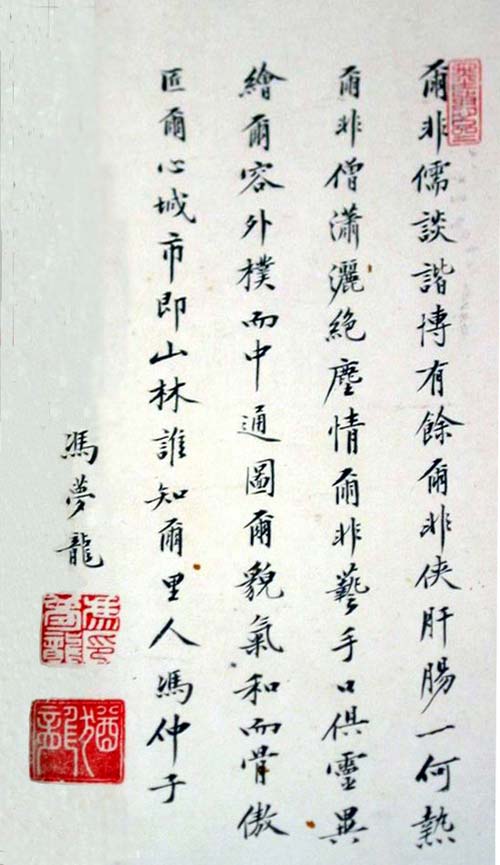Feng Menglong (1574-1646), whose courtesy name was Youlong, had other nicknames such as Su Cinu, Gu Qusanren, Moxuzhai Master, and Maoyuan Yeshimin. He lived in the late Ming Dynasty and was greatly influenced by the thoughts of the citizen class. He was good at poetry and talented. Together with his elder brother Feng Menggui and younger brother Feng Mengxiong, he was known as the "Three Fengs under Wu". However, he failed in the imperial examination and became a tribute student in his later years. He served as the preceptor of Danyang County and the magistrate of Shouning County, Fujian Province. During his tenure, he was an honest official and diligent in governance. Qing soldiers entered the pass and participated in anti-Qing activities, but later died of worry and anger. Feng Menglong devoted his life to literary creation, especially in the field of popular literature. Popular literary works written. In the Tang and Song dynasties, "talking" - telling stories was popular, and its basis was Huaben. During the Song and Yuan Dynasties, literati edited and processed the dialogue scripts, and then imitated the writing of the scripts to form the pseudo-hua scripts. Feng Menglong collected extensively the scripts, compiled and created the scripts, and compiled them into "Three Words", namely "Essays to Tell the World", "Words to Warn the World", and "Words to Awaken the World", a total of 120 chapters. In the past, "Three Words" could not be seen in China, but it was kept in the Japanese Cabinet Library and the home of Japanese Kobayashi. Only later did photocopies and rearranged copies become available. Because the stories in "Three Words" are dramatic and legendary, they are very popular among the masses. Some stories such as "Du Shiniang sank the treasure chest in anger", "The oil seller monopolizes the oiran girl", "Song Taizu sent Jing Niang thousands of miles away" are almost household names. "Three words" and later "two beats" represented the highest achievement of vernacular short stories in the Ming Dynasty and had a profound impact on the development of literature at that time and in the future. Feng Menglong also edited "The Legend of Mohanzhai", collected and published folk song collections such as "Hanging Branches" and "Folk Songs", supplemented the novel "Ping Yao Zhuan", revised "New Kingdoms", and compiled notes Such books include "An Introduction to Ancient and Modern Discussions", "Think Tank", etc.









